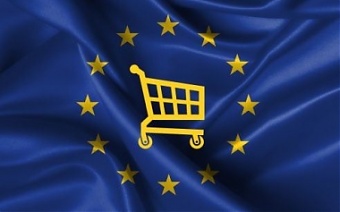Analytics, EU – Baltic States, Legislation, Markets and Companies, Modern EU
International Internet Magazine. Baltic States news & analytics
Thursday, 18.04.2024, 22:38
EU’s trade defence policy: protecting member states’ industries
 Print version
Print version |
|---|
The purpose of this new legislation is to make sure that the
EU has trade defence instruments that are able to deal with current realities
(e.g. state-induced distortions which too often lead to overcapacities) in the
international trading environment, while fully respecting the EU's
international obligations in the legal framework of the World Trade
Organisation (WTO).
The EU is one of the most open markets in the world; the states are defending
open, fair and rules-based trade. However, the EU’s conviction that trade
brings prosperity doesn’t prevent it from defending European industries and companies
when other states do not play by the rules. New set of EU modernised tools will
be able to deal more effectively with the ever changing realities of the
international trading environment.
Commissioner for Trade, Cecilia Malmström, underlined
that the entry
into force of the EU's new anti-dumping and anti-subsidy legislation has been an
important step in the Union’s trade defence policy. It signals the EU's
commitment to protect industries from unfair competition in imported goods,
particularly from countries whose economies are significantly distorted owing
to state interference. The publication of country reports will help to put the
new methodology into practice and will give the EU industries a basis on which
to make complaints concerning countries where distortions exist.
The new methodology will also strengthen the EU
anti-subsidy legislation so that, in future cases, any new subsidies revealed
in the course of an investigation can be investigated and included in the final
duties imposed.
Short
history
In November 2016, the European Commission presented a
proposal for a new method for calculating dumping on imports from countries
where there are significant market distortions*). The European Parliament and
the Council reached agreement with the Commission's proposal after three-way
negotiations in October 2017.
*)
EU legislation implementing the internationally agreed provisions for dealing
with dumped imports is set out in Council Regulation (EC) No 2016/10361.
Published in OJ “L”, 176, 30.6.2016, in:
http://eur-lex.europa.eu/legal-content/EN/TXT/PDF/?uri=CELEX:32016R1036&from=EN
Commission’s
brochure “How to make an anti-dumping complaint: a guide”, see at:
http://trade.ec.europa.eu/doclib/docs/2017/december/tradoc_156473.12.12.17_final.pdf
Significant
distortions: definition
Following its publication in the EU's Official Journal, the revised legislation introduces a new way of calculating whether dumping has occurred in imports into the EU from countries where the economy is distorted owing to state interference.
http://eur-lex.europa.eu/legal-content/EN/TXT/?uri=OJ:L:2017:338:TOC
|
Note: Regulation (Art.2 b) points out that
“significant distortions are those distortions which occur when reported
prices or costs, including the costs of raw materials and energy, are not the
result of free market forces because they are affected by substantial
government intervention. In assessing the existence of significant
distortions regard shall be had, inter alia, to the potential impact of one
or more of the following elements:
|
http://eur-lex.europa.eu/legal-content/EN/TXT/HTML/?uri=OJ:L:2017:338:FULL&from=EN
Calculating
dumping: China’s case
The standard way of calculating dumping is to compare
export prices with domestic prices or costs in the exporting country (see also
art.2 above). If, due to state intervention in the economy, domestic prices or
costs are distorted, the Commission will disregard these when calculating
domestic value. Instead, it will use other benchmarks reflecting undistorted
costs of production and sale.
The new methodology can apply to any WTO member. Before
applying the new methodology, it will be necessary to show that significant
distortions exist in the economy of the exporting country as a result of state
interference.
To do this the Commission will examine all the evidence
presented in the course of an investigation by the EU industrial sectors. The
Commission may also prepare reports describing the economies of certain
countries or sectors in this context.
In parallel with the publication of changes to the EU's
anti-dumping legislation, the Commission has released the first country report
envisaged by the new legislation. The Commission selected China for the
first report because the bulk of the EU's anti-dumping activity concerns
imports from that country.
The report (published on 20th of December 2017) describes
factually certain aspects of the Chinese economy, focusing on the country's
macro-economy; the main production factors used in all manufacturing processes
(e.g. labour, energy, etc.); and certain sectors of the economy, including
steel and ceramics.
Other reports will be prepared on the basis of the same
criteria: their relative importance in the EU's anti-dumping activity, as well
as indications that there may be distortions related to government
interventions in the economy. The next country report will concern Russia.
Thus, the EU industries may rely on the country reports as
evidence to request the use of the new methodology in anti-dumping
investigations. In the course of each investigation, the Commission will
examine if the use of the new methodology should be applied based on all the
evidence in the file. All parties concerned by an investigation, including the
government of the country concerned as well as exporting producers, will have
the opportunity to comment on and disprove any findings made in the reports in
the course of the relevant investigations.
Social and environmental standards can play a role under
the new methodology. When selecting the appropriate representative third
country for the purpose of replacing costs, besides the per capita gross
national income or other relevant economic indicators, the Commission would
also take into account the level of social and environmental protection in the
representative source country.
More information on the following websites: = MEMO/17/5377;
= Regulation; = The report; = Procedure guide for
companies.
Source: Commission press release “EU puts in place new
trade defence rules”, 20.xii.2017, in:
http://europa.eu/rapid/press-release_IP-17-5346_en.htm;
Latvian version at: http://europa.eu/rapid/press-release_IP-17-5346_lv.htm








 «The Baltic Course» Is Sold and Stays in Business!
«The Baltic Course» Is Sold and Stays in Business!

